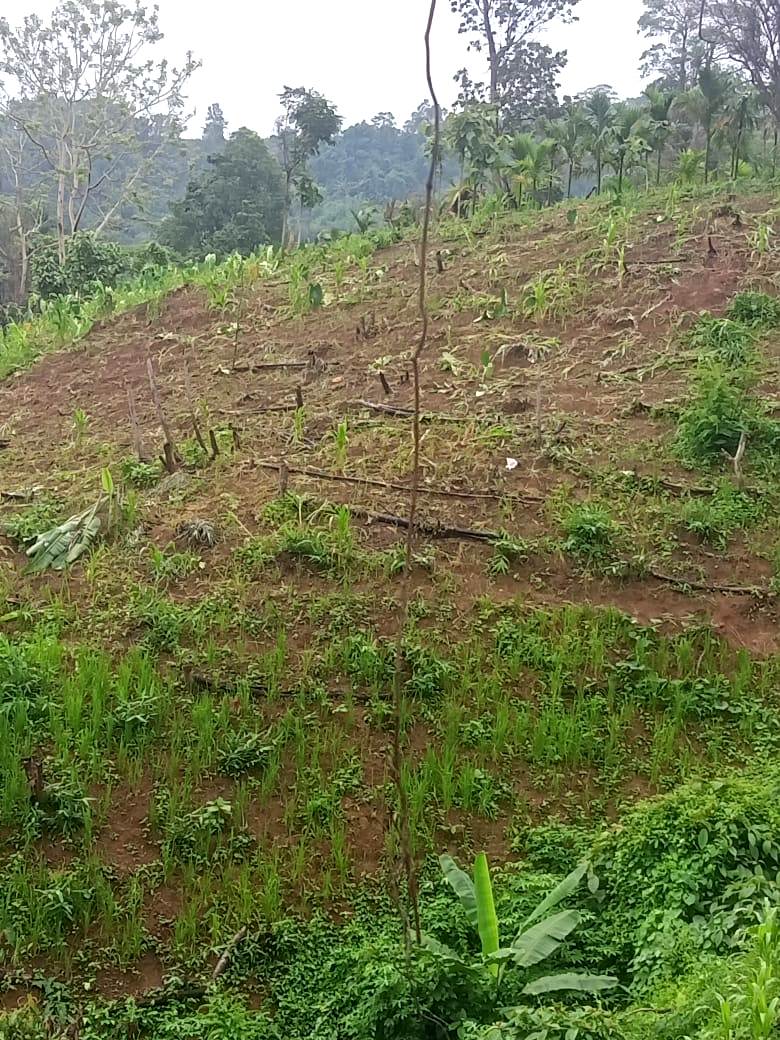MONDAY, AUGUST 04, 2025
- Home
- Nagaland: Wild elephant rampage causes havoc in Yanmhon Old Village
Nagaland: Wild elephant rampage causes havoc in Yanmhon Old Village
Wild elephants damage crops and property in Wokha's Yanmhon village, raising concerns over escalating human-elephant conflict.
Published on Jun 14, 2025
Share
WOKHA — A wild elephant rampaged through agricultural fields in Yanmhon Old Village, Wokha district, on the night of June 13, causing extensive damage to ginger, paddy, and areca nut farms, as well as several huts. The incident left at least five farmers severely affected.

Partially damaged farm with ginger, maize, and areca nut plants after a wild elephant rampage.
Yanmhon and surrounding areas have increasingly become a permanent habitat for wild elephants, with locals reporting sightings of two to three newborn calves—an indication of the escalating human-elephant conflict in the region.
Speaking over the phone, Yanmhon Old Village Council Chairman, Renpithung Mozhui, voiced grave concern over the growing threat to human life and property. He cited recent incidents of elephant attacks and damage, including the destruction of a two-wheeler, as signs of a worsening situation.
“This is a dire situation where both lives and livelihoods are at risk,” Mozhui said, urging the Nagaland government to adopt urgent mitigation measures. He called for comprehensive elephant management strategies and effective regulation of wildlife habitats to promote coexistence between humans and elephants.
Also read: Human-wildlife conflict deepens in Wokha amid elephant intrusions
Mozhui also pointed to the inadequacy of compensation provided to affected farmers in recent years. “Farmers have received only a few thousand rupees for crops and land that represent their primary source of livelihood,” he said, adding that the meagre assistance has led to growing frustration among the farming community.
Currently, over 200 wild elephants are believed to have established a permanent presence in various parts of Wokha district, with reports of increasing numbers of calves adding to concerns of long-term human-wildlife conflict.

